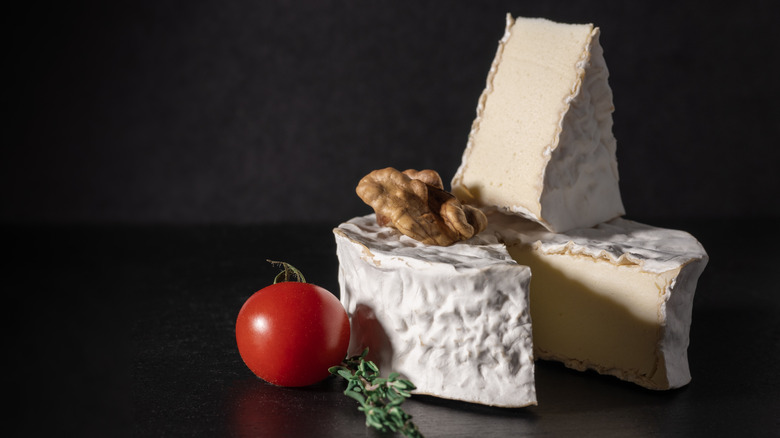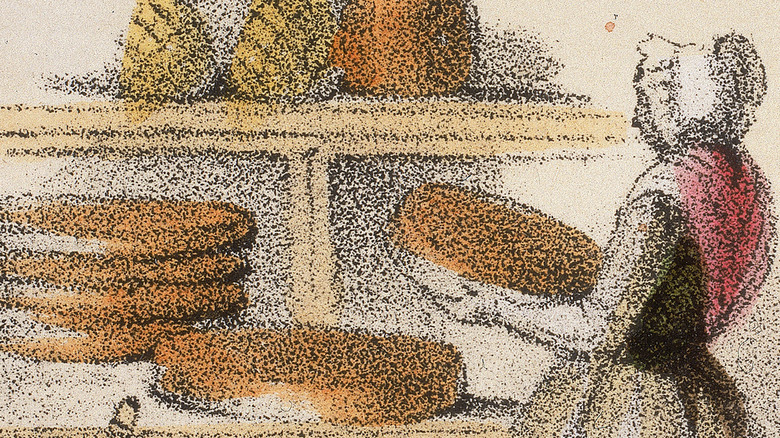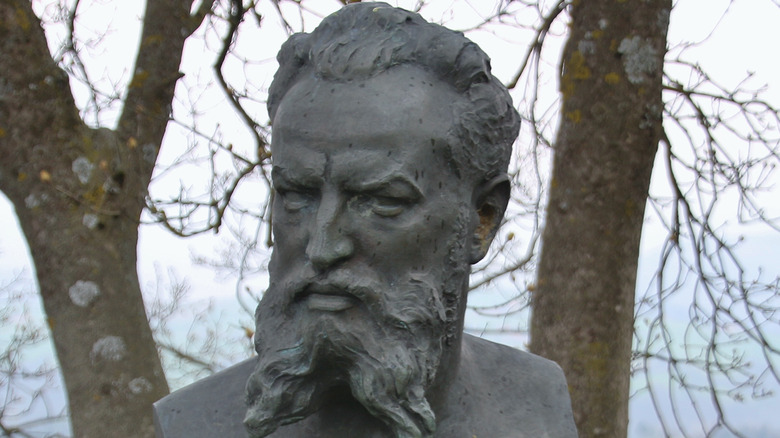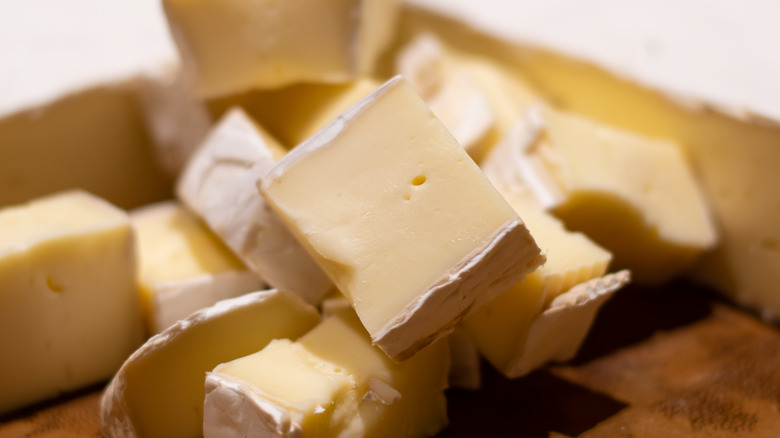Why Brie May Not Even Be French
Of all the French cheeses, brie may be the most recognizable. With its waxy, papery rind and creamy interior that melts across the tongue like butter, this cheese is a favorite for many. Brie is a very mild, soft-ripened cheese with a delicate, sweet flavor. The iconic bloomy rind comprises an edible mold called Penicillium candidum (via Whole Foods Market). According to Pong Cheese, the soft-ripened cheese gets its name from the region of France it's crafted in, Ile-de-France, just east of Paris.
Brie is a type of cheese as elegant as it is simple, easily eaten with anything from macaroni and cheese to charcuterie. At one point, it was even used to pay kings (via Cheese)! But this humble cheese has a long history as rich as its flavor. However, despite this history in France, one legend suggests that the story of brie might not have begun near Paris or even France but in the Middle East.
Middle Eastern origins?
While a cheese's taste, smell, and variety depend on a large number of factors, such as the animal milk used to make the cheese and the bacteria used in the process of making it, the majority of cheeses use rennet to purposefully curdle the milk, according to The Washington Post. Rennet would often be derived from calves (via The Spruce Eats). This is how an early ancestor of brie may have been created, quite by accident.
The legend suggests a Middle Eastern nomad filled a saddlebag made from an animal carcass with milk and set out on horseback. Throughout the journey, the rennet from the carcass curdled the milk in the nomad's bag and created curds and whey, producing what may have been brie's earliest ancestor, quite some distance from France (via Delishably). While this origin story is speculative at best, brie does have a concrete, recorded history in France and beyond.
The cheese of kings
Brie has very humble beginnings, having been created by monks near Meaux and Melun (via Musco Food). But despite such humble origins, the soft cheese was a delicacy beloved by kings, first and foremost among them being the French Emperor Charlemange, perhaps better known as Charles the Great. According to Musco Food, Charlemagne first tried this cheese in 774 and fell head over heels for brie, saying he "just discovered the most delicious of things" after that first bite.
Charlemagne wasn't the only royal to fall for the cheese, however. In the 16th century, brie would be adored by King Henry IV after his wife, Queen Margot, introduced him to it. Margot would often order it to keep her husband happy and with her rather than seeing his mistress, Gabrielle d' Estrées (via Pong Cheese). However, brie isn't just a cheese beloved by kings but is, in fact, the king of cheeses itself.
The king of cheeses
One of history's most well-known international conferences is the Congress of Vienna, held in the 19th century. The French diplomat, Tallyrand, called for a break in official proceedings to hold a contest to see which country produced the best cheese. The congress sampled more than 60 cheeses during the contest. The present nations put their best-curdled milk forward, including Italy's diplomat promoting Gruyere and the English representative presenting Stilton as their cheese of choice. But Brie de Meaux was the cheese that won the day. After a vote and much praise, brie earned the title 'Le Roi des Fromages,' the King of Cheeses (via Delishably).
While its exact origins might not lie within France, it's hard to rebuke the idea that brie is a globally recognized cheese and is one of France's most significant cheese exports (via World Atlas). With such a rich history and a rich flavor all its own, brie has surely earned its reputation and title as the king of cheeses.



